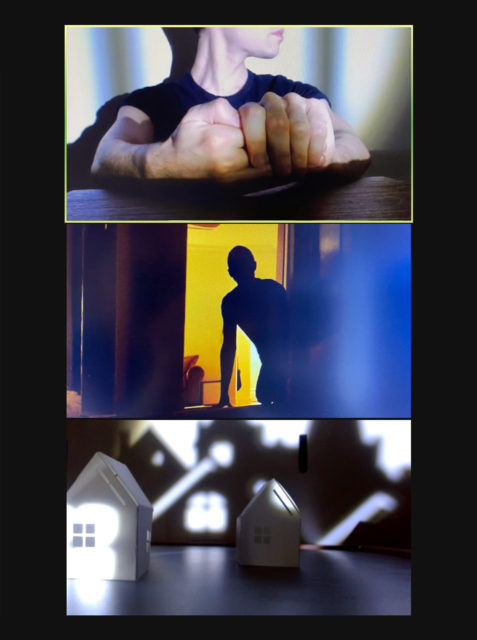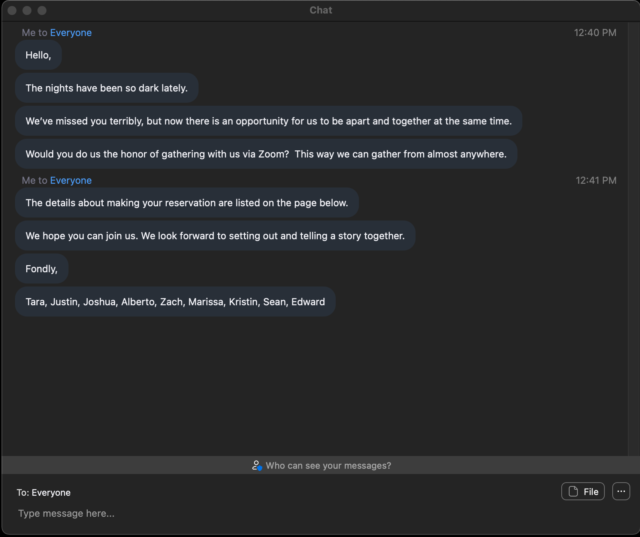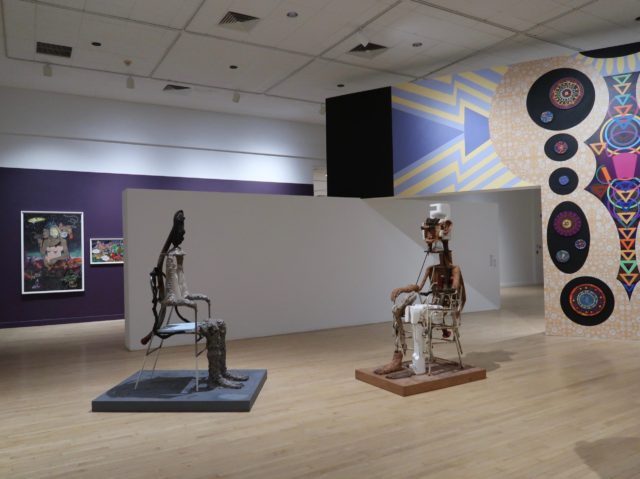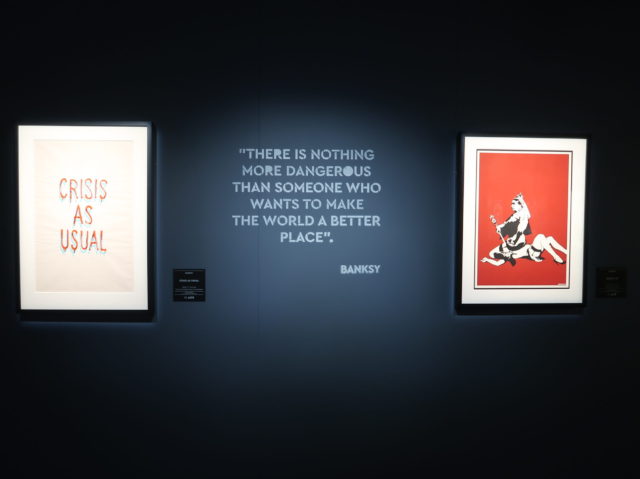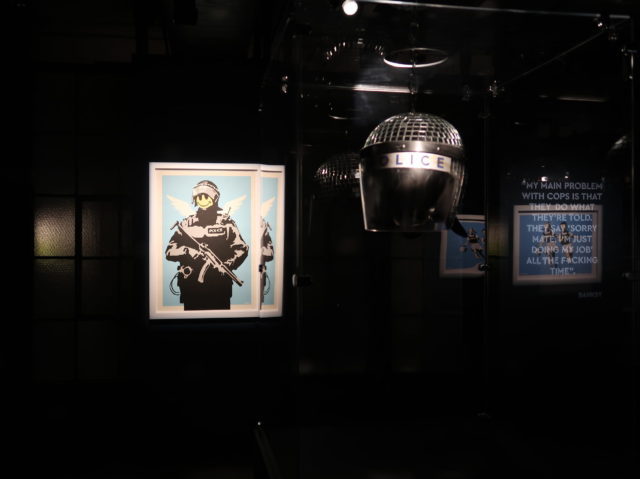
Eiko Otake returns to Belvedere Plaza in Battery Park City for twentieth anniversary of 9/11 (photo by William Johnston)
EIKO OTAKE: SLOW TURN
Belvedere Plaza, Battery Park City
Saturday, September 11, free with advance RSVP, 7:00 am & 6:00 pm
lmcc.net
www.eikootake.org
In 2000, Eiko & Koma were artists in residence on the ninety-second floor of the World Trade Center, in the North Tower. In July 2002, they presented Offering: A Ritual of Mourning in six city parks, starting at the Belvedere in Battery Park City, just west of where the towers stood. The meditation on loss ultimately toured the world. On September 11, Eiko Otake, who has been performing solo for several years, returns to the Belvedere for Slow Turn, consisting of movement, a monologue of personal memories of 9/11, and music by clarinetist and composer David Krakauer. Presented in partnership with NYU Skirball, the Battery Park City Authority, and the Lower Manhattan Cultural Council, Slow Turn takes place at 7:00 am, as the sun reaches the plaza, and again at 6:00 pm, as the sun sets over the Hudson River. Admission is free with advance RSVP.
BUGLISI DANCE THEATER: TABLE OF SILENCE PROJECT 9/11
Josie Robertson Plaza, Lincoln Center
65th St. between Broadway & Amsterdam Ave.
Friday, September 11, free, 8:00 am
www.tableofsilence.org
www.lincolncenter.org
Every September 11, there are many memorial programs held all over the city, paying tribute to those who were lost on that tragic day while also honoring New York’s endless resiliency. One of the most powerful is Buglisi Dance Theatre’s “Table of Silence Project,” a multicultural public performance ritual for peace, inaugurated in 2011, that annually features more than one hundred dancers on Josie Robertson Plaza at Lincoln Center. Because of the coronavirus crisis, it has been reimagined for the twentieth anniversary of the 9/11 attacks, as part of Lincoln Center’s “Restart Stages” programming. The event will begin with artistic director Jacqulyn Buglisi’s 2001 piece Requiem, her response to 9/11, with costume designer Elena Comendador transforming the original ten-foot-long red, gold, and green silk costumes into white and silver, representing ashes, purity, and sacredness.
Thirty-two dancers will gather around the Revson Fountain for Table of Silence Prologue, joined by bell master and principal dancer Terese Capucilli, electric violinist Daniel Bernard Roumain, and spoken-word artist Marc Bamuthi Joseph delivering “Awakening.” The performance will be livestreamed on Facebook and YouTube, and will also include the world premiere of Nel Shelby Productions’ short film Études II and the full 2019 performance of Table of Silence Project 9/11.
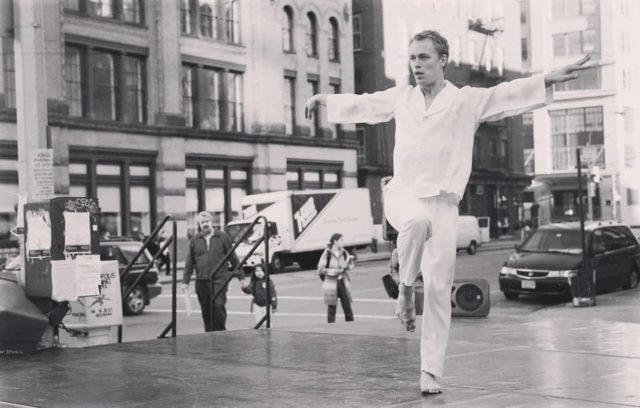
Tadej Brdnik will come out of retirement to honor the twentieth anniversary of 9/11 with Battery Dance (photo courtesy Battery Dance)
BATTERY DANCE MEMORIAL
Traffic island bordered by Varick and Franklin Sts. and West Broadway
Saturday, September 11, free, 8:46 am
facebook.com/BatteryDance
On September 11, 2001, shortly after the towers fell, Tadej Brdnik of Tribeca-based Battery Dance performed a solo on the traffic island bordered by Varick and Franklin Sts. and West Broadway, accompanied by four musicians. For the twentieth anniversary of 9/11, Brdnik will come out of retirement, joined on the same location by company members Sarah Housepian, Jill Linkowski, and Vivake Khamsingsavath, who will direct the piece, set to a composition by violinist Yu-Wei Hsiao. There will be no speeches, no fanfare, just a peaceful memorial of movement and music, occurring at the exact moment the first tower was hit on that fateful day. “We welcome passersby, neighbors, and anyone who may feel inspired to join us as a way of marking this tragic, life-changing occasion with the beauty and solemnity of this performance,” Battery Dance founding artistic director Jonathan Hollander said in a statement.

New York City AIDS Memorial Park will honor twentieth anniversary of 9/11 with special gathering
A VILLAGE GATHERING: HONORING AND REMEMBERING 9/11
New York City AIDS Memorial Park
76 Greenwich Ave.
Saturday, September 11, free with advance RSVP, 5:00
villagepreservation.force.com
Art2Action, Greenwich House Music School, Rattlestick Playwrights Theater, and Village Preservation are joining forces on September 11 at 5:00 for a twentieth-anniversary remembrance at New York City AIDS Memorial Park, a safe space where people can participate in sharing stories, singing songs, and expressing themselves in other ways to honor those lost on 9/11 as well as celebrate the resiliency of the city.


